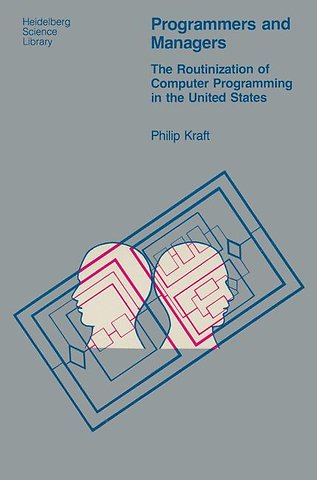Programmers and Managers
The Routinization of Computer Programming in the United States
Paperback Engels 1977 1977e druk 9780387902487Samenvatting
Norbert Wiener, perhaps better than anyone else, understood the intimate and delicate relationship between control and communication: that messages intended as commands do not necessarily differ from those intended simply as facts. Wiener noted the paradox when the modem computer was hardly more than a laboratory curiosity. Thirty years later, the same paradox is at the heart of a severe identity crisis which con fronts computer programmers. Are they primarily members of "management" acting as foremen, whose task it is to ensure that orders emanating from executive suites are faithfully trans lated into comprehensible messages? Or are they perhaps sim ply engineers preoccupied with the technical difficulties of relating "software" to "hardware" and vice versa? Are they aware, furthermore, of the degree to which their work whether as manager or engineer-routinizes the work of others and thereby helps shape the structure of social class relation ships? I doubt that many of us who lived through the first heady and frantic years of software development-at places like the RAND and System Development Corporations-ever took time to think about such questions. The science fiction-like setting of mysterious machines, blinking lights, and torrents of numbers served to awe outsiders who could only marvel at the complexity of it all. We were insiders who constituted a secret society into which only initiates were welcome. So today I marvel at the boundless audacity of a rank out sider in writing a book like Programmers and Managers.
Specificaties
Lezersrecensies
Inhoudsopgave
Rubrieken
- advisering
- algemeen management
- coaching en trainen
- communicatie en media
- economie
- financieel management
- inkoop en logistiek
- internet en social media
- it-management / ict
- juridisch
- leiderschap
- marketing
- mens en maatschappij
- non-profit
- ondernemen
- organisatiekunde
- personal finance
- personeelsmanagement
- persoonlijke effectiviteit
- projectmanagement
- psychologie
- reclame en verkoop
- strategisch management
- verandermanagement
- werk en loopbaan

